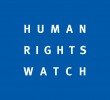The Supreme Court’s affirmation of the quadruple convictions for libel of Remate columnist Erwin Tulfo, managing editor Susan Cambri, national editor Rey Salao, and city editor Jocelyn Barlizo, and Remate president Philip Pichay, as well as the go signal it gave to the Vigan court to try the libel case against Philippine Daily Inquirer correspondents Teddy Molina and Juliet Pascual, publisher Isagani Yambot and editor in chief Letty Jimenez-Magsanoc highlight the need to decriminalize libel.
In the case against Tulfo, et al, the high court’s decision to impose a fine of 6,000 pesos for each guilty finding and the payment of moral damages to the complainant, instead of allowing the convicted journalists to be jailed, shows the wisdom of decriminalizing what is essentially a draconian law that dates back to our colonial enslavement and which was passed to stifle free speech and a free press rather than to safeguard the rights of victims of defamation.
The high court also upheld the earlier decisions allowing the Vigan City regional trial court to proceed with the libel trial against the Inquirer correspondents and editors.
We note particularly the portion of the ruling that says: “Freedom of expression as well as freedom of the press may not be unrestrained, but neither must it be reined in too harshly. Lastly, the responsibilities of the members of the press notwithstanding, the difficulties and hazards they encounter in their line of work must also be taken into consideration.”
We, therefore, urge Congress to act with dispatch on libel decriminalization bills pending in both chambers, both to correct a historical anomaly and to restore the spirit of the Constitution’s admonition against laws that infringe on the freedom of the press and of speech without sacrificing the right against being defamed.
The Philippine media are far from perfect and admittedly have their own share of abusive practitioners. We take this opportunity to reiterate our call for adherence to ethics, both among journalists and media owners.
But while we would never advocate allowing unethical journalism to go unpunished, we also know from bitter experience that, in this country, our outdated libel law, which allows jail time for convictions, has been wielded by the enemies of press freedom as yet another weapon to intimidate media into silence.
It is bad enough that the country continues to rank as the second most dangerous in the world for journalists because of the number of media practitioners murdered amid a culture of impunity that official apathy and outright attempts by government to stifle press freedom have allowed to flourish.
We therefore challenge our lawmakers to set things right by striking the antediluvian law from our statute books and replace it with one that cannot be used by those who seek to cow a critical press.
For reference:
Jose Torres Jr., Chairperson
Sonny Fernandez, Secretary General










